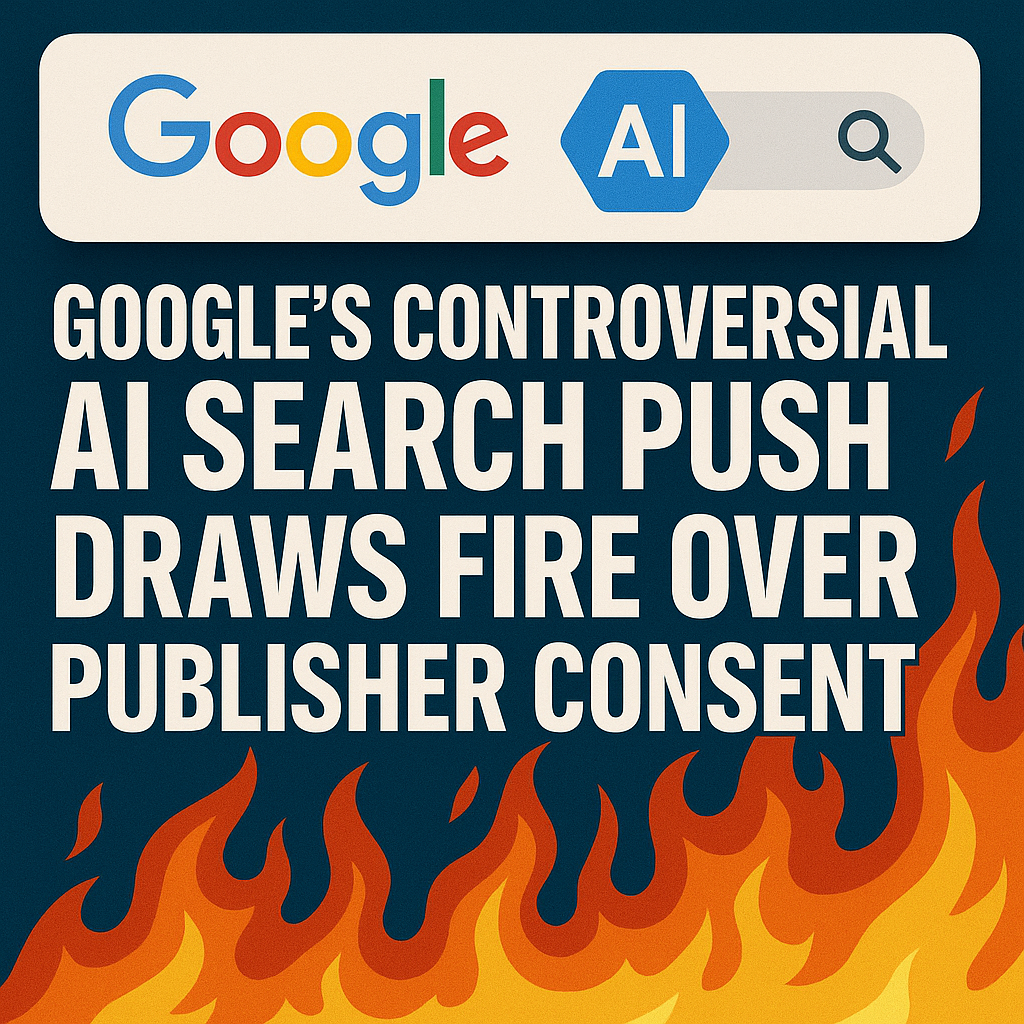In a move that’s sending shockwaves across the digital publishing industry, Google has decided not to offer publishers any formal opt-out mechanism for their content being used in its new AI Search features. This decision is reigniting long-standing concerns around content scraping, web data usage, and the blurred boundaries of AI training data acquisition.
While Google insists it complies with standard crawling policies and respects robots.txt exclusions, critics argue that such mechanisms are inadequate in the age of generative AI, where scraped content may be reassembled and displayed in synthetic answers without credit, consent, or compensation.
What’s Changing in Google Search?
Google’s next-generation AI-powered search engine—currently rolling out to millions of users—relies on large language models to generate summarized answers from indexed web content. However, unlike traditional blue-link search results, these summaries often display content without driving traffic to the original web publishers.
The tech giant has made it clear: there will be no special opt-out tools for publishers beyond existing crawling protocols. This effectively folds public web content into the AI training loop by default, intensifying the ethical debate over web scraping and content ownership.
Publisher Backlash Grows
Major digital media organizations are already voicing strong disapproval. They argue that Google’s policies are tantamount to digital appropriation and undermine the economic model of online content monetization.
“Generative AI is monetizing our intellectual property without any dialogue,” said one prominent publisher CEO. Others warn that this may erode the publisher rights ecosystem, leading to a chilling effect on quality journalism.
This isn’t just about traffic or visibility—it’s about survival in a market increasingly dominated by tech industry practices that sideline the very content creators they depend on.
The Broader Debate: Web Ethics vs. AI Innovation
Google defends its approach by pointing to the public nature of the content it crawls. “We’ve always indexed the web to serve users,” said a spokesperson, adding that Googlebot continues to honor standard exclusions. But the transition from search indexing to AI generation introduces novel risks not addressed by existing frameworks.
The debate brings to the forefront unresolved tensions around:
- Web Scraping Ethics
- Data Collection Practices
- Publisher Consent
- Copyright Concerns
- AI Transparency and Accountability
Is Regulation Inevitable?
This controversy may accelerate government scrutiny. Regulators in the EU and the U.S. are already examining the intersection of generative AI and copyright law. With Google’s refusal to offer publisher-specific AI exclusions, pressure is mounting for a new legal framework that balances innovation with fair content usage.
Industry observers say a standardized AI opt-out—akin to a robots.txt for AI training—could emerge as a baseline demand in the coming months.
Conclusion: A Tipping Point for Digital Media
As Google continues its march toward a more AI-dominant future, the lines between search engine, content aggregator, and content creator are blurring. For publishers, the question remains: how to retain control over their content in an ecosystem where visibility doesn’t guarantee traffic—and where AI can replicate without permission.
Whether this becomes a turning point in favor of publishers or further tilts power toward platforms will depend on how the legal, technological, and ethical debates unfold.



